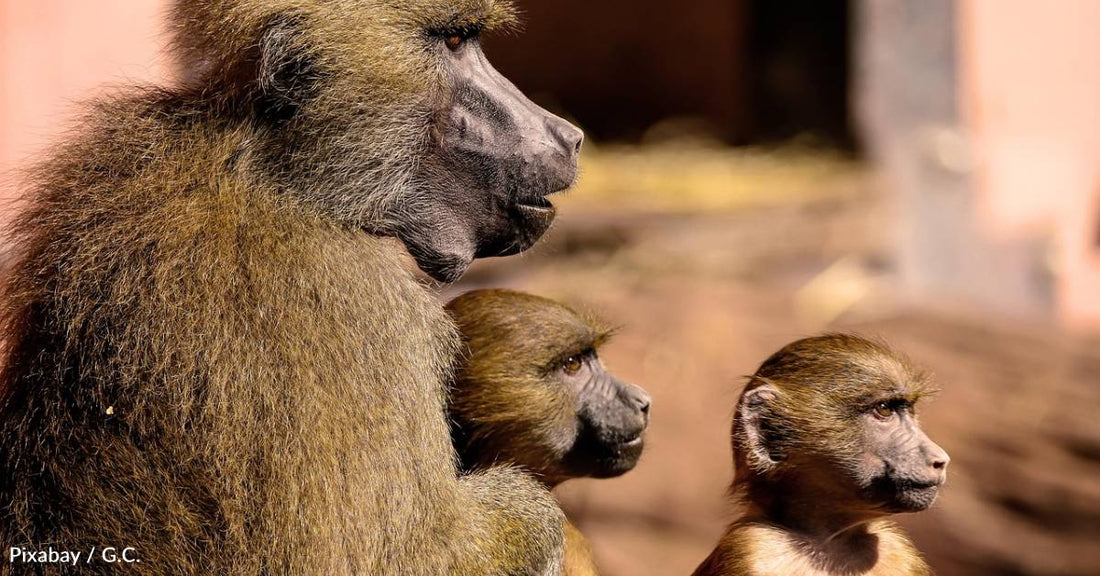Strong Baboon Father-Daughter Relationships Lead to Longer Lifespans
Michelle Milliken
In nature, there are many species in which fathers aren’t all that involved in the upbringing of their offspring, despite often living in the same group. However, new research finds for one species, the more involved dads are, the longer their daughters will live.
Researchers at the University of Notre Dame recently studied whether paternal involvement in baboons leads to any benefits for female offspring’s life outcomes. To conduct the study, published in Proceedings of the Royal Society B, the team drew data from a baboon population in Kenya that has been observed since 1971, thanks to funding from the National Science Foundation and the National Institutes of Health. In this particular population, males are not known to contribute much to their offsprings’ parenting.

In all, the team looked at 216 female baboons and their fathers, focusing on whether they lived together and on their grooming of each other, which is a form of bonding.
Of the pairs studied, about a third lived in the same social group for at least three years, while for the rest, the father either died or left. For young females who had stronger relationships with their fathers, or who lived with them for at least three years, their lifespan was two to four years longer than females who didn’t have this sort of relationship with their fathers. This was the same regardless of how much adversity they faced in early life.
Stronger relationships resulted when fathers had fewer mating opportunities, suggesting father-daughter relationships may be strained by mating efforts.

Elizabeth Archie, study co-author and professor of biological sciences at Notre Dame, says, “Male baboons tend to reach their peak reproductive success when they’re young adults. But once they’ve had a few kids and their condition declines, they sort of slide into ‘dad mode,’ where they don’t disperse as much and they don’t try as hard to mate. Then they have time to invest in and hang out with their kids.”
This extra time was found to correspond with stronger grooming relationships, too. These findings build on other research on the benefits of paternal relationships, including a study that found being close with dad led to a stronger bond with paternal half-siblings.
Why does this relationship lead to better longevity, though? It could be due to fathers helping their daughters during conflicts and providing a safe space.

Archie says, “Males seem to sort of expand a child’s social network, as they can be popular members of their social group. Lots of baboons are coming up and interacting with the male. So an infant who’s hanging out near a male has more diverse social interactions than if they’re only hanging out with mom. And dads can create a sort of safety zone for their daughters.”
You can read more of the study here.

